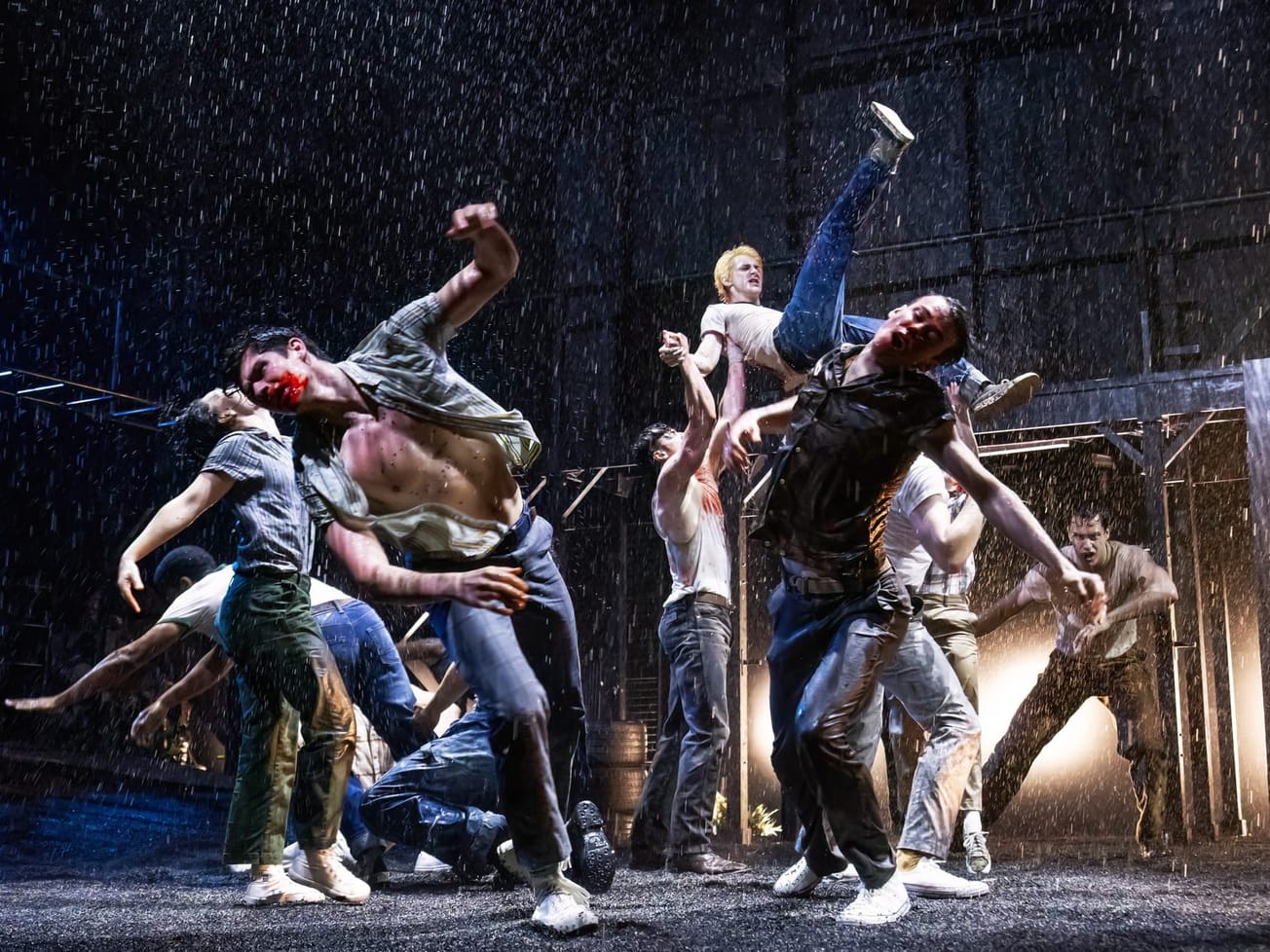The battle that Broadway casting directors are fighting over unionization already took place a decade ago in Hollywood.
Casting directors in Hollywood received health and pension benefits and union recognition in 2006 after a multiyear campaign involving pushback from producers, support from high-profile actors and the possibility of a strike. While their story closely aligns with that of Broadway casting directors, President Trump and the politicized issue of employee classification is now diverting them from that path.
Casting directors in Hollywood first approached Teamsters Local 399, a Los Angeles-based union that includes studio drivers and location managers, around 2002. The casting directors had run into issues joining other unions in Hollywood because of their employment status, said Steve Dayan, secretary-treasurer of Teamsters Local 399.
“Nobody wanted to do it, because everybody took the position that they were independent contractors and they wouldn’t be able to get recognized or organized,” Dayan said.
Regardless, the Teamsters aligned with the casting directors and spent years organizing, an effort that included adding assistant casting directors to the union and partnering with Teamsters Local 817 to represent film and television directors in New York. Along the way, they gathered support from high-profile actors such as Meryl Streep, Martin Scorsese and George Clooney, who made public statements in favor of the casting directors.
However, when the Teamsters asked for recognition of the union from The Alliance of Motion Pictures and Television Producers, they were rebuffed — though AMPTP did offer health and pension benefits without union recognition. AMPTP argued that the casting directors were independent contractors, not employees, and thus were not allowed to unionize.
About 18 months ago, Broadway casting directors began following in their Hollywood compatriots’ footsteps, organizing for collective bargaining rights and health and pension benefits. They similarly gathered support from prominent actors, as well as other unions in the city, and were not recognized by The Broadway League for the same reason: They were considered independent contractors.
However, this is where the two stories diverge.
In the winter of 2005, thus far unsuccessful in their attempt to be recognized, the Hollywood Teamsters threatened to strike. The strike would have included a total of about 4,000 union members, including drivers and location managers.
In turn, the Hollywood producers’ association asked the casting directors to go to the National Labor Relations Board, which oversees the collective bargaining rights of private sector workers and could help decide the matter on unionization. Only employees can vote to be represented by unions, as recognized by the NLRB, and, if the Board allowed the election to go forward, it would be making a statement that casting directors were bona fide employees.
The vote went forward, with the casting directors voting overwhelmingly in June 2005 to be represented by the unions.
“It was a game changer, because we knew if we got all the votes that was the last hurdle before the bargaining,” Dayan said.
A Backstage report after the election stated that the NLRB decided who could vote “based on their work record with the studios and producers.” A spokeswoman for AMPTP said the producers would then “honor our duty to bargain in good faith.”
The producers eventually recognized the union, with the first contract under the new terms coming out in January 2006.
The AMPTP did not make an executive available for comment on the specific events.
The League has similarly asked Broadway casting directors to go to the NLRB and ask for an election. However, Broadway casting directors have said they do not want to go to the agency as governed by President Trump’s administration, implying that the ruling would not be in their favor.
And experts say they may be right.
Currently, the NLRB has two Republicans and two Democrats on its board and Trump has the option to appoint a fifth board member. Trump also appointed Peter Robb, the general counsel, who would have ultimate say over NLRB rulings.
Calling the NLRB “one of the most politicized agencies,” Eve Klein, chair of the employment, labor benefits and immigration group at the law firm Duane Morris, said the Trump administration’s pro-business focus would likely tilt rulings in favor of workers’ status as independent contractors, which can be less costly for businesses.
“Under the Trump administration, closer cases are going to come out in the contractor status,” Klein said.
The issue of employee categorization isn’t limited to the entertainment industry. It’s become a hot-button issue due to the rise of workers in the “gig economy,” a term that refers to independent contractors or short-term workers typically employed at startup technology companies, said Catherine Fisk, a professor at the University of California at Berkeley School of Law who has written about Hollywood unions.
Uber Technologies Inc., the most valuable private company in the U.S., has become a banner company on the issue of employees versus contractors due to its legal battles with its drivers over employment classification.
“The issue of who is an employee versus an independent contractor has become much more salient now,” Fisk said.
Though many large-scale cases on employee classification are decided through the court system, a determination on casting directors at the NLRB would be closely watched and could become politicized, she said.
Today in Hollywood and in New York, producers consider the union’s film and television casting directors to be employees.
“If you’re talking about Local 399-represented Casting Directors employed by companies signatory to that Agreement, they would be considered employees,” an AMPTP spokesperson said in an email to Broadway News.
Otherwise, AMPTP said the status of the casting directors depends on “terms of engagement between the casting director and the company.”
The fact that Broadway casting directors have said they will not go to the NLRB, at least while it is under Trump, has become a sticking point for the League. The League filed suit against seven casting agencies in early December, claiming violations of antitrust laws.
“The issues here are not complex, and boil down to whether the casting companies are ‘companies’ subject to the antitrust laws, or whether they are ‘employees’ covered by the labor exemption,” the League said in a court document filed in the United States District Court for the Southern District of New York on Jan. 24.
Additionally, the League said it had offered to litigate the issue in front of the NLRB in mid-2016, under Obama’s administration — though given the timeline involved, the case and decision itself may not have been resolved under Obama.
In later court documents, lawyers from Berger & Montague, P.C., who are representing the casting directors, argue that the issues in the suit are, in fact, more complex. To begin, the lawyers object to the fact that there has been “a boycott” of producers who do not agree to pay what the League claims is a “29% surcharge” on top of negotiated fees.
The lawyers from Berger & Montague are asking that the issue of whether the League has grounds to sue be ruled on before any determination of whether or not casting directors are covered by the labor exemption.
If the case proceeds past that, the lawyers are arguing that the casting directors are allowed to organize under the antitrust labor exemption, which allows for collective bargaining when pertaining to individuals working in their own self interest to better their own wages and benefits.
“[T]he casting directors’ attempts to secure the basic workplace fairness enjoyed by nearly every other worker on Broadway are immune from antitrust scrutiny under the statutory and non-statutory antitrust labor exemptions,” Michael Dell’Angelo, a lawyer at Berger & Montague, wrote in a Jan. 22 letter filed to the court.
As for the question of whether that covers the casting directors, if they are considered independent contractors, the lawyers cite a case involving HBO and the Directors Guild of America, in which a judge ruled that the directors involved were allowed to organize for better work conditions, even though some may be independent contractors.
The next step for Broadway casting directors is a pretrial conference Jan. 31, in which lawyers for the League and for the casting directors will meet to determine how the suit will proceed.


























































